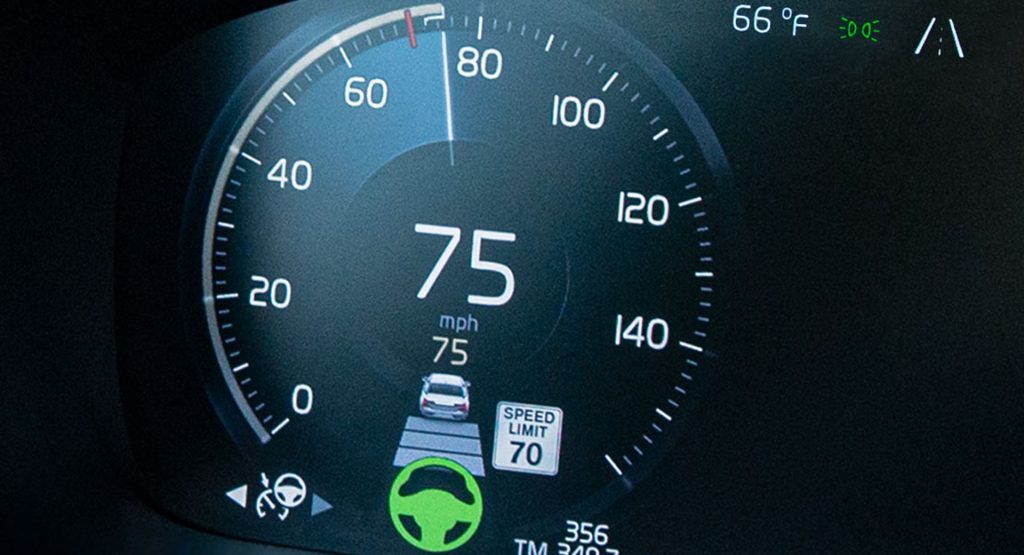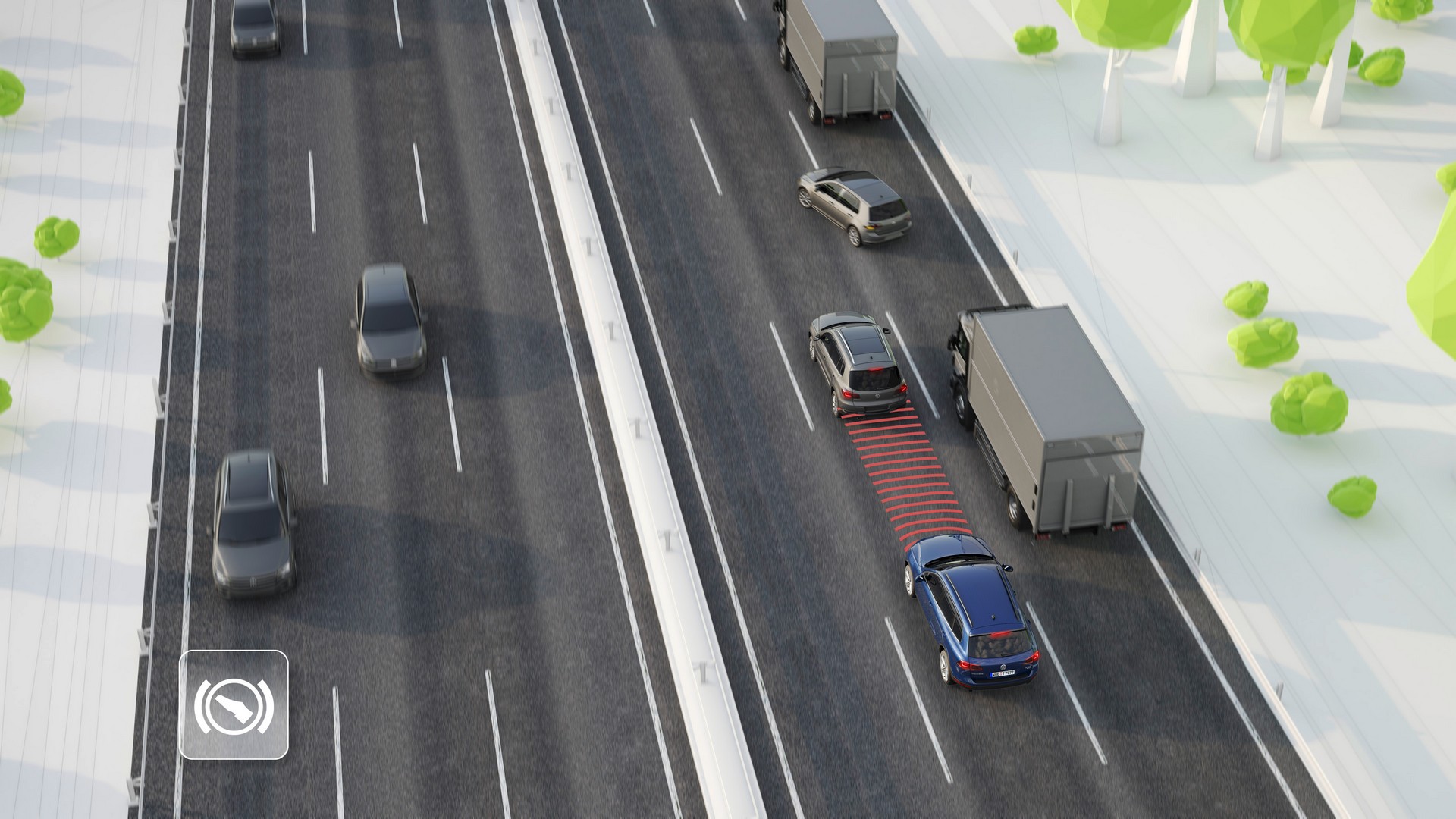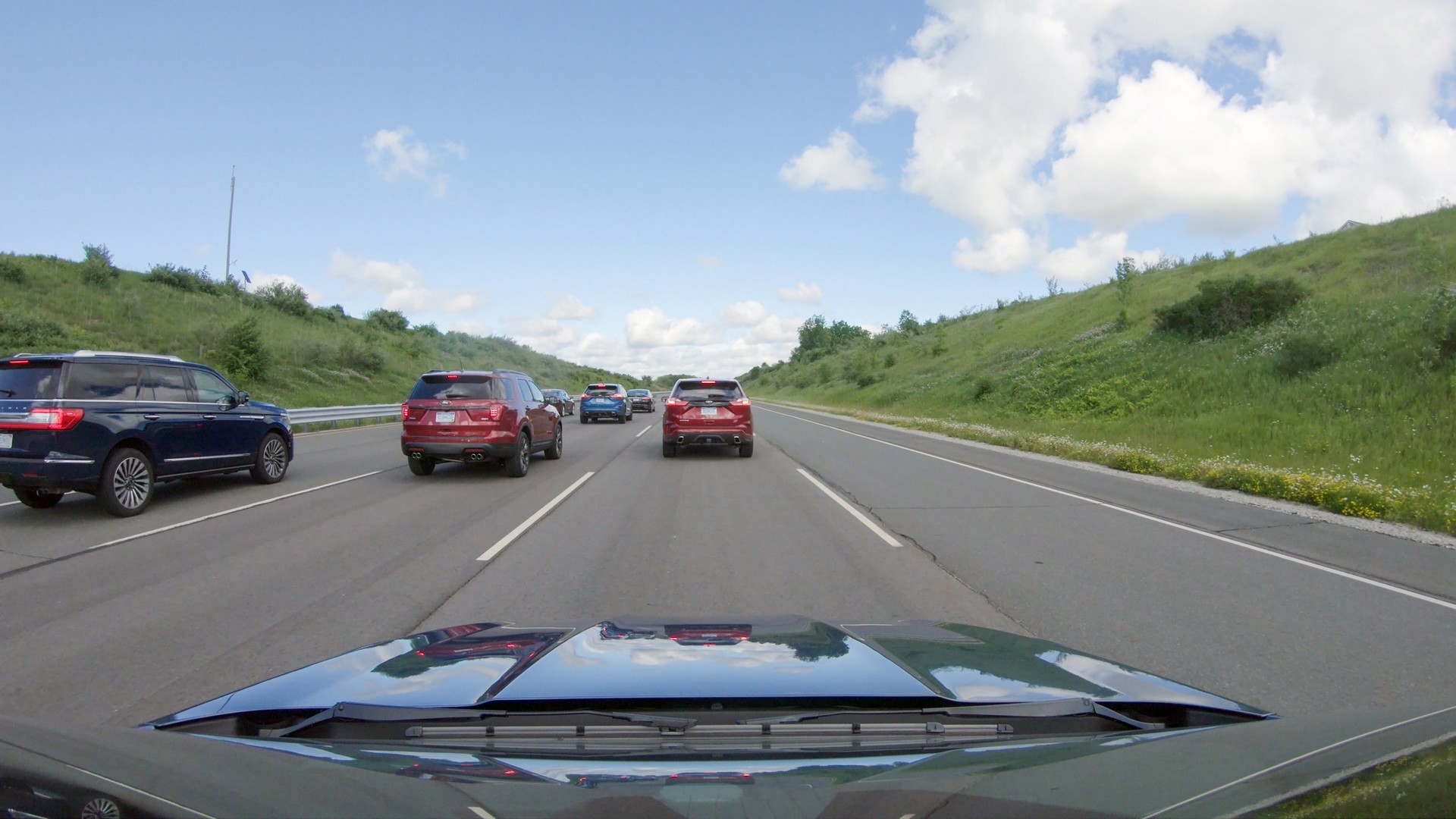Adaptive cruise control makes traveling on the highway a breeze, but drivers are apparently using it as a “tool for speeding.”
That’s according to a new study from the Insurance Institute for Highway Safety (IIHS), which found drivers are “substantially more likely to speed” when using adaptive cruise control as well as systems that combine adaptive cruise control with a lane centering function.
As part of a four-week study, 40 drivers were provided with a Range Rover Evoque with adaptive cruise control or a Volvo S90 with adaptive cruise control and a lane centering function. The IIHS studied their behavior behind the wheel and found that drivers were 24 percent more likely to speed on highways when the driver assistance systems were used.
Also Read: Raising Speed Limits Doesn’t Deter Speeding, But It Increases The Risk Of Injury And Death
Besides being more likely to speed, drivers were going faster overall. In particular, in 55 mph (89 km/h) zones, drivers typically went 1 mph (1.6 km/h) faster when using driver assistance systems than when driving ‘manually.’
That doesn’t sound like much of a difference, but the IIHS noted “users are at about 10 percent higher risk of a fatal crash, according to a common formula for calculating probable crash outcomes.” IIHS statistician and lead author Sam Monfort summed it up by saying “Driving faster is more dangerous, you can’t argue with physics.”
That being said, the study didn’t account for a handful of factors that could improve safety such as improved reaction times by using adaptive cruise control. The IIHS also noted studies have shown adaptive cruise control may lower crash risks as these systems “maintain a greater following distance, at their default settings, than most human drivers.” Adaptive cruise control also seems to reduce the frequency of passing and other lane changes made by drivers.
Of course, these safety benefits could be cancelled out if drivers use adaptive cruise control to speed. As Monfort noted, “Speed at impact is among the most important factors in whether or not a crash turns out to be fatal.”






